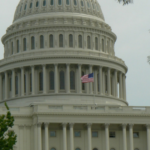A District Court judge in New Jersey has granted a defendant’s request to compel arbitration in a Fair Debt Collection Practices Act class-action case, more than a year after originally denying a request to do so.
A copy of the ruling in the case of George v. Rushmore Service Center, LLC, can be accessed by clicking here.
The plaintiffs incurred personal debts that became past due and were placed with the defendant for collection. The defendant sent collection letters to the plaintiffs. The letters allegedly violated the FDCPA by not properly identifying the name of the current creditor to whom the debt is owed, according to the plaintiffs. One letter identified an “original creditor” instead of the current creditor. Another letter identified the “Current/Original Creditor,” which the plaintiff alleged was confusing as to whether the company was the current or the original creditor.
Despite the fact that the operating agreement contained an arbitration clause, the judge denied the original motion to compel arbitration because the defendant filed its motion under a rule that required the arbitrability to be apparent on the face of the complaint, which it was not.
After engaging in discovery for more than a year, the defendant filed another motion to compel arbitration, which Judge William Martini of the District Court for the District of New Jersey granted.
By using the credit card in question after they were mailed the cardholder agreement, the plaintiffs thus agreed to the terms of the agreement, which included an arbitration clause. Under the terms of the agreement, the defendant was allowed to enforce it, even though it was not the original creditor, Judge Martini ruled.









